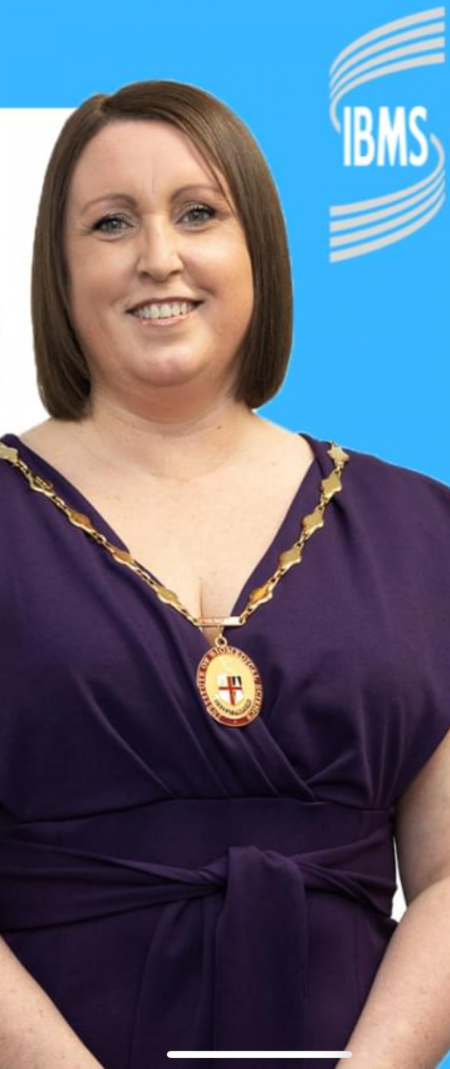Publish date: 16 March 2022
Clinical Pathology Lead Debra Padgett talks about starting a new job during the pandemic and her pride at being elected to an exciting national role

The profile of healthcare science has never been higher after two years of a pandemic which has seen things like testing and vaccination an almost daily fixture in the global media.
I’ve always had a keen interest in science and started out as a medical laboratory assistant straight from university. Almost 22 years later I’m now working as the Clinical Pathology Lead at Northumbria after joining the trust from North Cumbria last year.
Pathology is the study of disease. It is the bridge between science and medicine. It underpins every aspect of patient care from diagnostic testing and treatment advice, to using cutting-edge genetic technologies and preventing disease.
Simply put, pathology services are an essential part of the health service analysing the millions of tests that are done for patients every day. In fact, pathology is involved in more than 80% of all diagnoses made by the NHS.
Covid19 has proved a huge challenge to everyone with all NHS teams experiencing the pressures in different ways and of course, we’ve been right at the heart of it.
Over the last two years, I have been amazed by the sheer determination, commitment and expertise on display every day from our pathology and mortuary teams, and though it has been a terrible and tragic time for many, I am proud that we have been able to help the general public understand the importance of testing and that we have been able to showcase the vital work of Pathology.
The pressure on staff has been immense and everyone in the NHS has been asked to go above and beyond the call of duty on so many occasions. I’m so proud of everyone in the team and the way they all pulled together time and again.
The pandemic has given biomedical science a profile that we had previously never been able to obtain. We’ve gone from an unknown virus that nobody knew anything about, to a situation where we can test and vaccinate people quite easily. It has been an opportunity to demonstrate the complexity of all the work that we do and how key we are to the vast majority of clinical diagnoses, not just to the coronavirus response.
Our focus now is on returning to business as usual and supporting the elective recovery plan with the backlog of diagnostic work that has built up during covid as well as planning for an exciting, new lab building.
I’m really passionate about our profession and helping people to understand more about what we do and just how important it is to modern healthcare. Part of that was being elected to the role of President of the Institute of Biomedical scientists by our 20,000 members.
It can be quite daunting to be that figurehead but it also gives me great pride to be able help shape the national focus on healthcare science.
The pandemic has undoubtedly raised the profile of science in healthcare so it’s vital that we capture that interest and engage with the next generation to become part of our workforce.
